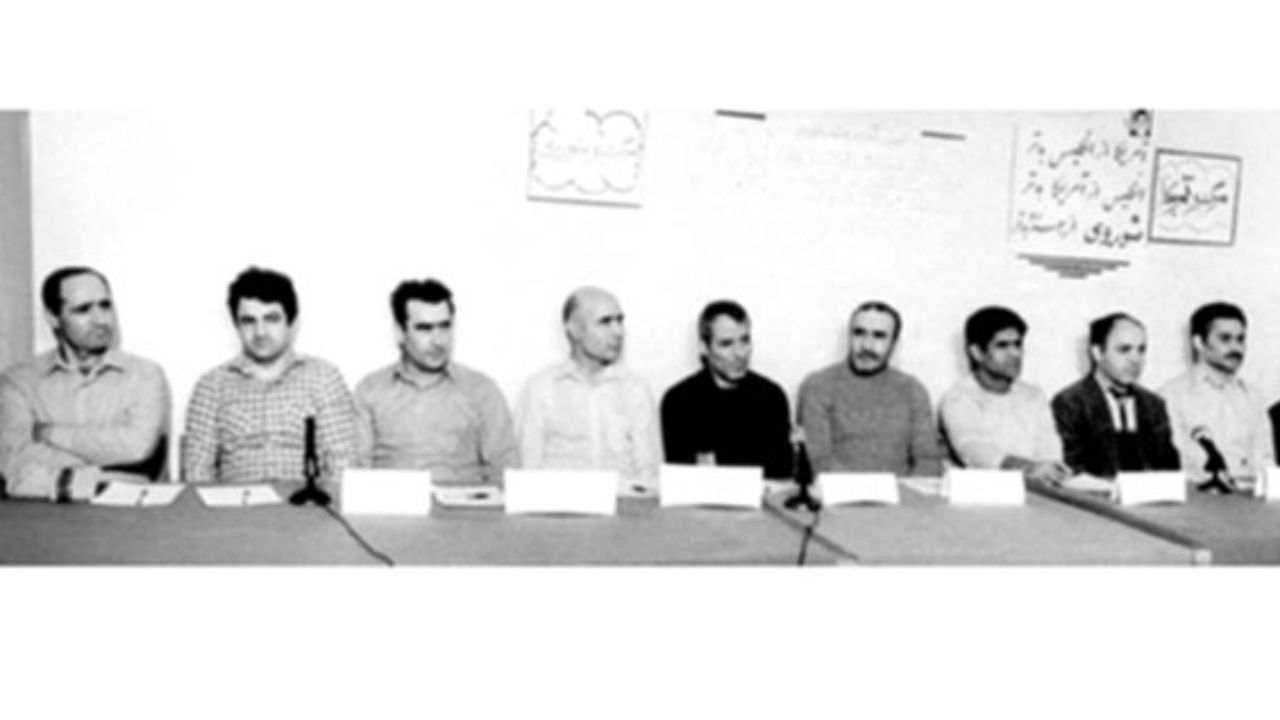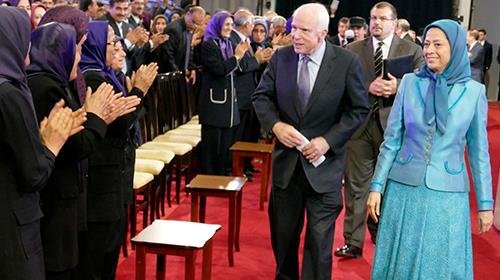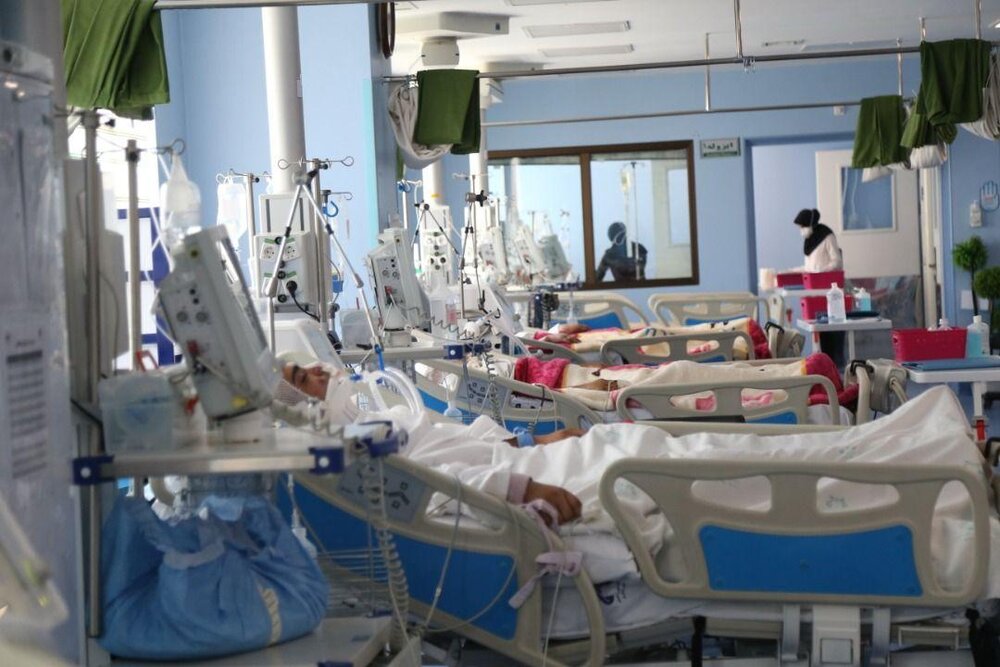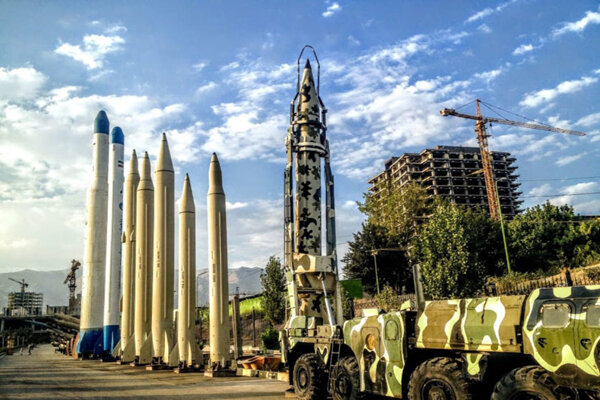Iran's increasing power and authority would not be guaranteed without the support of the Iranian nation for the Islamic Revolution as well as the efforts of the Armed Forces.
The Iranian nation has always been successful and proud in overcoming the imposed difficulties and problems by the global arrogance, mainly the US.
Americans have led economic and political pressures besides their planned cultural and the psychological warfare against Iranians as of the victory of the Islamic Republic, during the eight years of the Sacred Defense (Iraq-Iran war) and in all the past recent years.
In the past 40 years, the US has always been found red-handed designing and leading anti-Iranian conspiracies.
In what follows, the most notorious Americans' anti-Iranian scenarios and activities will be over viewed.
Nojeh Coup (1980)
When the Islamic Revolution took place in Iran back in 1979, the United States started to put various political pressures on Iran. Most importantly, it planned a coup to overthrow the newly established Islamic Republic of Ian and the Late Revolution Leader Ayatollah Khomeini.
The plan involved officers and servicemen from the infantry, air force, army and secret service. Revolts were supposed to take place in the ethnic regions of Iran, particularly among Bakhtiari, Qashqaei and Boyer-Ahmadi ethnicities and were aimed at distracting the attention of the Islamic Revolution Guards Corps forces (IRGC) and other military units loyal to the Islamic Republic from Tehran and evacuate the capital to quell the unrest. Simultaneously, hundreds of commandos and army ground forces in Tehran were ready to take over key areas in the capital including Mehrabad airport and other strategic centers.

The plan was organized by Colonel Muhammad Baqir Bani-Amiri, a retired Gendermerie officer, with the Shah's last Prime Minister, Shahpour Bakhtiar, contributing financial support and providing his contacts and authority.
But it was largely halted by the arrest of hundreds of officers on 9–10 July 1980 at Nojeh Air Base, near Hamedan.
Documents released by the Islamic Revolution's Documents Center show that the US has played a major role in designing and implementing the Nojeh coup plot in Iran in 1980.
The reported documents are related to the confessions made by Nasser Rokni, a pilot, who had collaborated with the coup plotters.
Iran-Iraq war (1980- 1988)
Just months after the execution of those found guilty in Nojeh coup and the cleansing of the army by the Islamic Republic, Iraq launched an eight-year war on Iran in 1988 and the US decided to implicitly try military act against Iran.
Since Iran in the judgment of the Reagan administration was changed into the US' greatest enemy in the Persian Gulf, the Reagan administration wanted Iraq to win the war.
The administration concluded that Iraq's defeat in the war would be contrary to US interests in the Persian Gulf region.
The US economic aid to Iraq started in 1983, and by the end of the war amounted to more than a billion dollars. The US supported Saddam Hussain with several billion dollars' worth of economic aid, the sale of dual-use technology, non-US origin weaponry, military intelligence, and special operations training. In 1985, the US began to issue export licenses for high-tech equipment. Some of the technology that Iraq subsequently purchased from the United States figured in its later prohibited weapons programs.
The US was secretly aware that Iraq was using chemical weapons against the Iranians almost daily. When the European allies of the US learned of this shift in US policy, they, too, especially the Germans, began selling technology to Iraq that proved important in its unconventional weapons programs, especially chemical weapons.
Above 180,000 Iranians martyred in Iran-Iraq war.
Terrorist Mojahedin-e Khalq Organization (1979-present)
The US also planned plots to weaken Iranian Armed Forces via backing terrorist groups, including Mojahedin-e Khalq Organization (MKO also known as MEK) as of the victory of the Islamic Revolution, during the war with Iran and afterwards.
Based on the achieved documents, the MEK has been in league with the Central Intelligence Agency (CIA), noting that the terror group has been an agent for Washington since the late 1970s.
More than 17,000 Iranians, many of them civilians, have been martyred at the hands of the MEK in different acts of terrorism including bombings in public places, and targeted killings. Since 2010, this terrorist group’s henchmen have assassinated four senior nuclear scientists in Iran.
In Saddam’s war against Iran, the cult provided Iraq with intelligence and even attacked Iran militarily by an army of MEK members.
US State Department put the MEK on their list of international terrorist organizations on October 8, 1997.

It was revealed by a 2012 NBC News report that MEK’s brutal assassination of Iranian nuclear scientists has been committed via training and arming by Israel’s secret service. The report also conveyed that what was being said by US officials confirmed the same charges leveled by Iran’s leaders about the Israeli involvement in the killings in Iran.
In September 2012, however, the MEK was removed from the United States’ list of terrorist organizations, which made the government of America accountable for the blood of thousands of Iranians and Iraqis assassinated by members of this sectarian group.
“The MEK has been an agent of the US Central Intelligence Agency (CIA), and represents the single most expensive US covert foreign operation since the inception of the CIA at the close of World War II. From 1979 to 1989, the US, UK, and Saudi Arabia provided at least $3 billion dollars in funding to the MEK for the purpose of destabilizing Afghanistan subsequent to the Soviet Union invasion. It is from this history that observers today should consider claims made by the MEK as lacking in credibility,” Mark Mason an American political commentator said in 2017.
Later it was proved that the US was also behind these terrorist assassinations by provided intelligence to the MEK. Prize-winning journalist Seymour Hersh revealed in an interview with Democracy Now that the Bush administration secretly trained the MEK terrorist group when it was still included on the State Department’s list of foreign terrorists.
Regional terrorist cults, ISIL (1999-present)
Washington continued its dangerous policy of keeping the threat of terrorism alive in the region. The US has taken advantage of this insecurity in favor of its economic and political interests including its anti-Iranian plots.
Terrorist groups including the Daesh (also known as ISIS or ISIL) have always been the US assets.
The US has been working with the ISIS and aiding and abetting them in Syria and really incubated the group in Iraq. It has also been aiding and encouraging al-Qaeda in Afghanistan and the groups' affiliate cult in Syria and other terrorist groups in Libya.
Following the collapse of the ISIS terrorist group in Syria and Iraq, the US government equipped the ISIS militants in border areas of Pakistan with weapons.
This is why the Islamic Republic of Iran has always regarded the presence of American forces in the region as the root cause of insecurity for regional countries, warning that any provocative move by the US will draw a harsh response from Iranian military forces.
Iranophobia project (2001-present)
After September 11, 2011, the movements of the Americans in the region have been in line with a project led by the US-coalition named as 'Iranophobia', which seeks to make the world afraid of Iran in a bid to undermine the country’s growing power.
The hard-line lobbies in the United States as well as the Israeli regime and certain regional states followed-up the Iranophobia policy in various aspects in the past recent years.
They spread concern over Iran’s scientific and nuclear capacity and its regional power.
The Deal of Century is part of the US-Zionist Iranophobia project. The Projects, some believe, has been an effort to distract world public opinion from the Israeli regime's crimes against the Palestinians, as well as the US's support for these crimes.
In better words, by the help of some regional Arab rulers, the United States has attempted to normalize the relations between the Arab and Islamic countries with the Zionist regime to end the 70-year conflict between Palestine and Israel and spread Iranophobia in the region instead of 'Israelophobia'.
Rocket attacks on the Green Zone of the Iraqi capital Baghdad can also be an example of Iranophobia plots for the US officials are always quick to point the finger at Iran.
In addition to all above, the US has dispatched an aircraft carrier strike group, a bomber squad, an amphibious assault ship, and a Patriot missile battery to the Middle East to try to stack up pressure on Tehran, citing an alleged likelihood that Iran could target American interests in the region.
As a matter of fact, America has been making use of the anti-Iran rhetoric in a bid to sell billions of dollars worth of American munitions and military hardware to Arab rulers.
Withdrawal from JCPAO, Maximum Pressure Campaign (2018- present)
In 2018, the Trump administration withdrew from the Joint Comprehensive Plan of Action (JCPOA) and in 2019 it ratcheted up pressure on Iran via its “maximum pressure” campaign on the country and imposing a new and growing list of widespread sanctions or canceling the existing sanction waivers. Most importantly, the US tried to push Iranian oil exports down to zero.
However, the so-called campaign has failed because it could not make any change in Iran's Resistance behavior against the US.
The Islamic Republic believes says it has shattered the US’ maximum pressure campaign with maximum resistance and reliance on its national power.
In comments, Leader of the Islamic Revolution Ayatollah Seyed Ali Khamenei said the US’ attempts to block the export of Iranian oil will get nowhere as Tehran will be exporting any amount of crude it needs and wants.
Coronavrius pandemic under US sanctions
Following the outburst of the Covid-19 in Iran, the US along with its regional and extra-regional allies started questioning Iran’s behavior under the pandemic or exaggerating the extent of the problem inside the country. They also made some attempts to present the Iranian government inept in the fight against the virus. For instance, Mike Pompeo accused Tehran of censoring information about the outbreak and putting the rest of the world at greater risk.
This was while, the US cruel sanctions have been the worsening situation in the wake of the novel coronavirus outbreak. The sanctions have seriously hampered the country’s efforts to contain the deadly coronavirus.

The US embargo not only prohibits American companies and individuals from conducting lawful trade with Iranian counterparts, but given that the sanctions are extra-territorial, all other countries and companies are also bullied into refraining from doing legitimate business with Iranians, even the selling of medicines. Therefore, Iran's capability to provide the health, logistical and other essential infrastructure necessary to combat the disease has been drastically reduced.
Iranian FM Zarif said the US sanctions have made it “impossible” for Iranians to have access to essential drugs during the Covid-19 pandemic, warning that the bans are leading to a “humanitarian catastrophe”.
However, under both the US sanctions and the pandemic, Iranian nation and volunteer forces have got united to help those affected as the country battles the virus. Also, the Islamic Republic’s Armed Forces has spared no efforts to protect people’s health amid the battle against the coronavirus pandemic.The Iranian Army has been rendering assistance to the Iranian nation with all power since the outbreak of the COVID-19 epidemic via different measures including preparation of rehabilitation and medical centers.
Trigger mechanism; unilateral snapback of UNSC sanctions
In its latest anti-Iranian measure, the US claimed it has triggered the snapback mechanism, returning Iran sanctions lifted under UNSCR 2231.
The 13 UNSC members have categorically rejected the legal credibility of the US act. In addition, by virtue of UNSC Resolution 2231 which emphasizes that only member of the UNSC have the right to start the process of returning previous sanctions imposed by the UN against Iran, members of the UN Security Council have unanimously announced that since US is no longer a JCPOA participant, it (US) has no right to resort to coercion and its letter has no legal effect now or in the future.
Iran has called for action against Washington’s plan to reinstate the sanctions on it. Underlining that the US administration move is just a propaganda game an attempt to distract the American public attention before the upcoming US presidential elections and Trump's plummeting poll numbers. Tehran also warned that any act of aggression under the pretext of reinstating the sanctions, already lifted under the UNSC Resolution 2231, would draw an immediate and decisive response from Iran.
40-year 'Sacred Defense' against global arrogance
With all its evil plans appeared futile and doomed to failure, the arrogant power is, today, in the weakest position due to the authority of the Islamic Republic in the region and the world but it never ends up its evil and sabotage measures against Iran.
Thanks to the efforts of the Iranian great deterrent power that the enemies like the US and Israel do not dare to take military action against the Islamic Republic.
It is worth noting that as Iranian senior officials have repeatedly announced, the Islamic Republic of Iran has never initiated and will never start any tension and conflict in the region, but will always defend its territorial integrity with preparedness, strength and power.
Compiled by MNA

























Your Comment